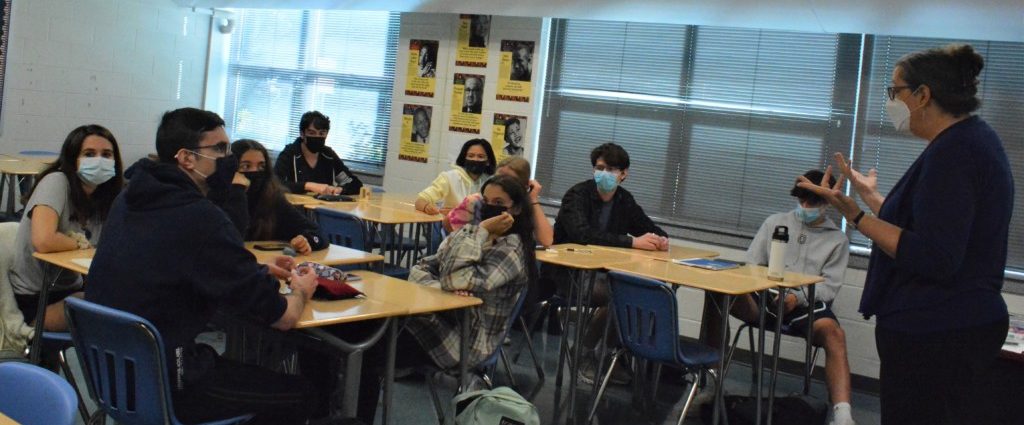The last five weeks have seen debates in hallways, classrooms and beyond over the debut of a new 40-minute class.
The class, Advisory, builds on the social-emotional learning time introduced last year.
Advisory co-leads Patrick McDonough and Katy Sokolove said the administration gathered student opinions in 2020 where some students said they wanted teachers to understand them “as whole humans” and support their social-emotional growth alongside their academic growth.
“Because we all dispersed as a community in March of 2020, it’s really important that we spend some conscious time on kids building relationships with each other and with adults in the building,” McDonough said.
Sokolove said Advisory is intentionally teacher-led right now, but she hopes in time it will be student-led and that students can work together to decide what they want to do during that time.
“It’s almost meant to expand the work of FTP,” Sokolove said. “We’re creating a space where freshmen and sophomores are able to talk to juniors and seniors and for [students] to be each other’s experts.”
Student organizations are already reaching out to the Advisory co-leads with ideas they’d like to implement, and McDonough and Sokolove are helping them build their ideas into lessons.
“We had little input on the activities that take place in Advisory [right now],” Student Equity Team member and junior Francis Abradu-Otoo said. “But as the year progresses, we’ll look for student input to make Advisory more meaningful and engaging.”
McDonough and Sokolove said people often tend to look through “an individual lens,” and some students don’t think Advisory is necessary because they’re already in an activity where they receive non-academic interactions.
“Well, what about the person in your Advisory that isn’t involved in a sport or a club?” Sokolove asked. “Part of our job as people is not just to take care of ourselves, and not just to look through the lens of what do I need, but to look a little bit outwards.”
Even from an individual lens, McDonough believes Advisory still benefits students.
“If you’re a high achieving student or a 12th grader, there are real life skills to take away from learning to lead a small group and learning to share your skills with a group,” McDonough said.
The co-leads also said the teachers are “absolutely raving” about their Advisory students.
“The kids are struggling with that they’d rather be using that time differently, but overall, they’re being really gracious about it. And I think this just really confirms that they have a lot to offer each other,” Sokolove said.
McDonough and Sokolove hope students will suggest healthy ways to be together in Advisory and not ask for homework time. They believe Marshall’s high productivity culture has not made it healthier.
“The logic of productivity culture is that it incrementally carves away at your non-academic or your non-work life,” McDonough said. “And that’s just not okay.”
Sokolove questions if Advisory is even the true source of students’ complaints.
“In the big scope of 10,080 minutes in a week, we’re taking 40 of them,” Sokolove said. “Is Advisory the problem? Or is the amount of homework that kids are being given that’s the problem? And isn’t that a better question to be asking?”

